Maverick Citizen: Limpopo
A hazy future for some farmers despite tobacco ban lift
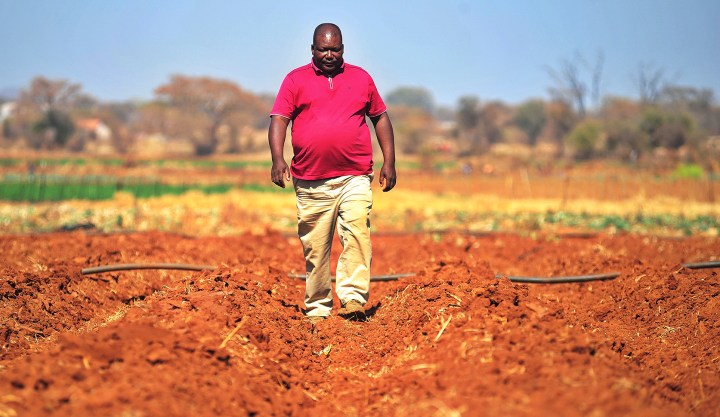
The lengthy prohibition on cigarette and tobacco sales during the Covid-19 lockdown has hit emerging farmers the hardest.
Tobacco farmer Senne Erasmus Sefoloshe employed 13 full-time workers on his Limpopo farm, Hereford in Groblersdal, before the Covid-19 lockdown. Now, only two remain.
“I have had to ask everyone to go home until we know what is going to happen,” Sefoloshe says, as the last two workers prepare the soil for planting vegetables which he hopes will bring some income in the coming months.
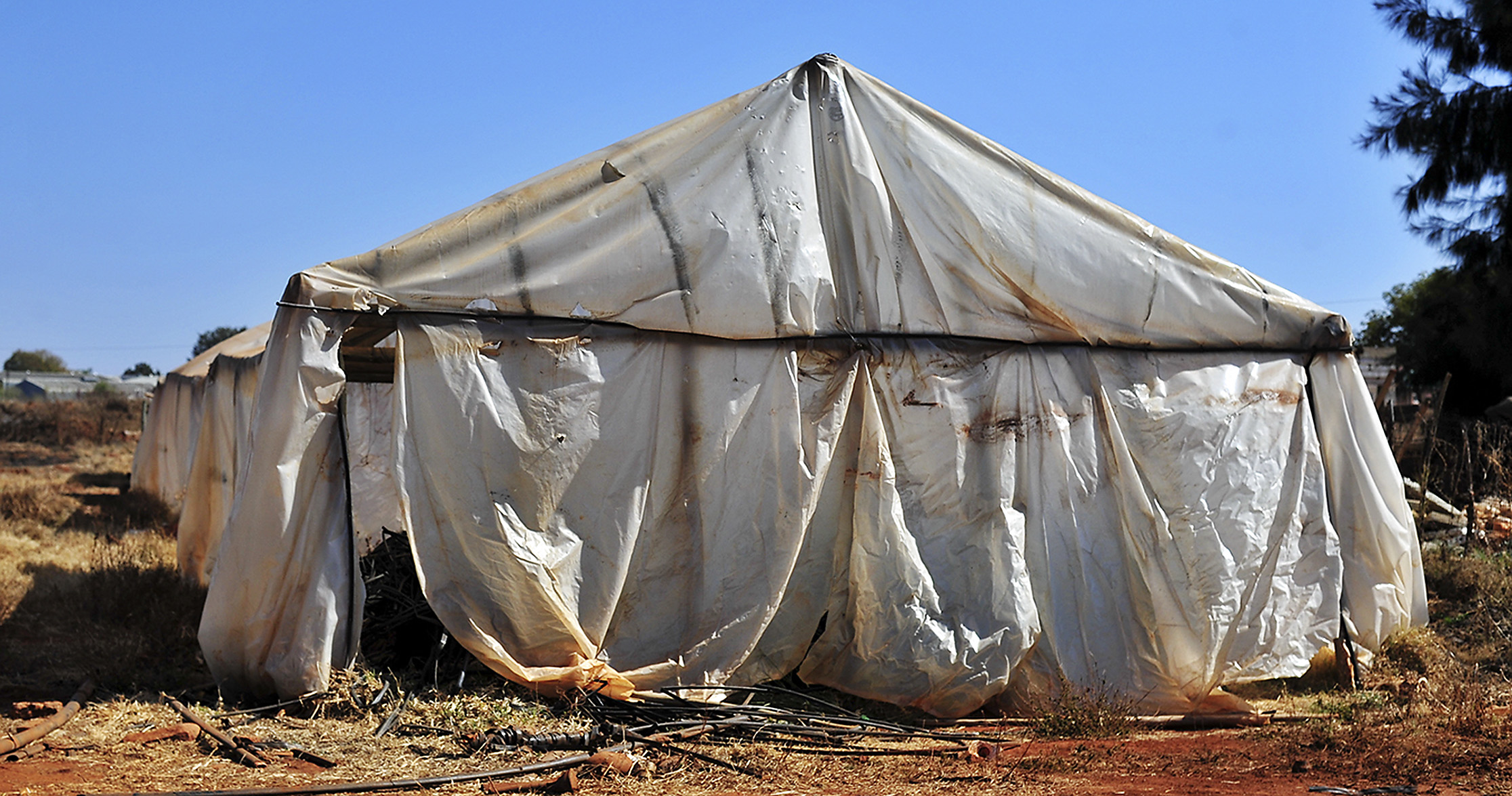
The tobacco planting season is due to start in September but uncertainty looms for emerging farmers as the ban on tobacco products has not been lifted.Drying shed. (Photo: Lucas Ledwaba/Mukurukuru Media)
Normally in August they would prepare for the new tobacco planting season. The crop is planted in September and harvested from December to April.
“But there is nothing we can do now because we don’t know what is going to happen. Everything is on hold,” says Sefoloshe.
He is a member of the Black Tobacco Farmers Association (BTFA) which organises mentoring programmes, helps farmers access markets and joins in the fight against the prevalence of the illicit trade of cigarettes.
The BTFA says in Limpopo, where Sefoloshe is based, there are 45 black tobacco farmers who are growing 49 hectares of sun-cured Virginia tobacco. They also grow 49 hectares of food crops in four areas of the province, which include Elandskraal, Groblersdal, Venda and Mookgophong.
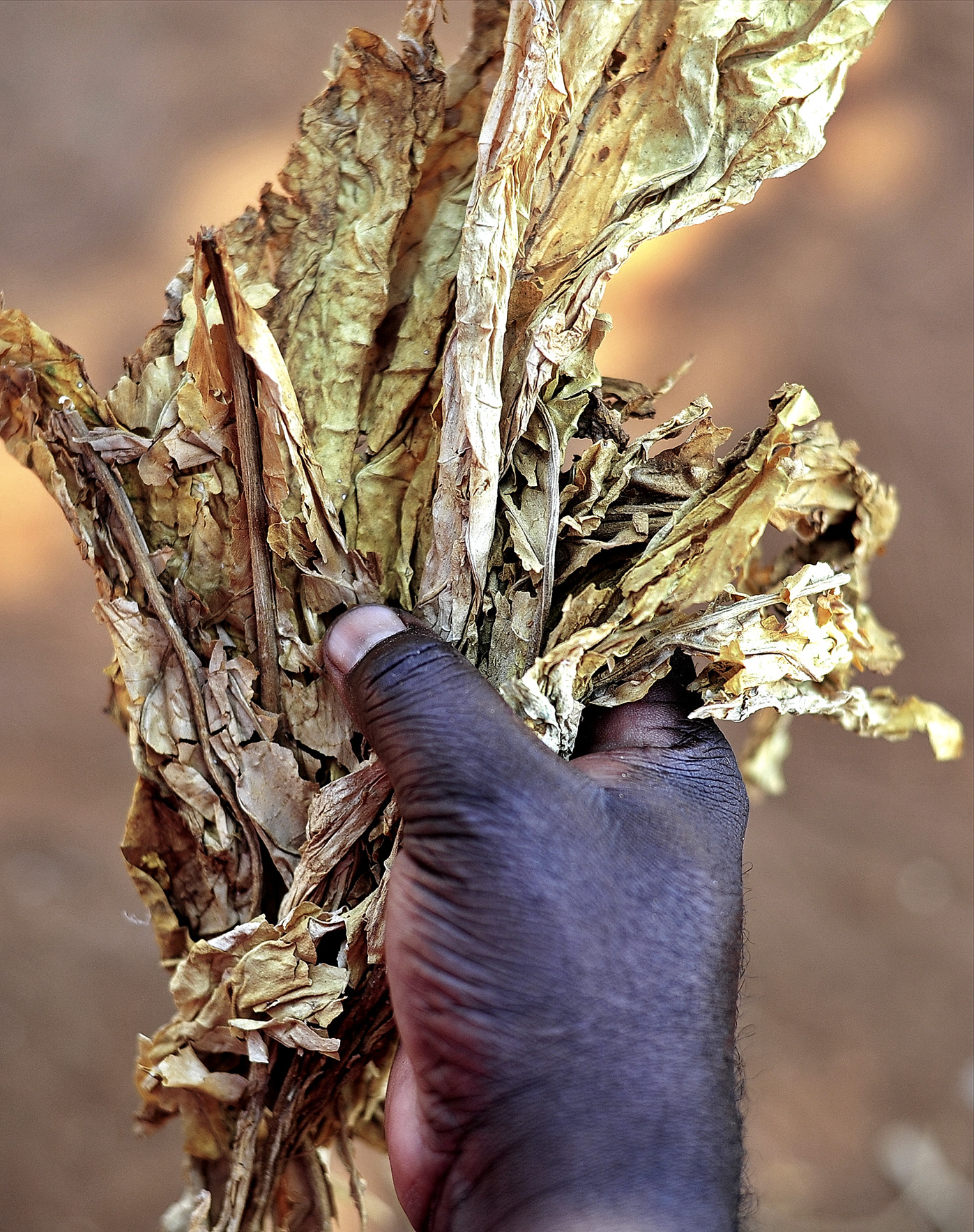
Emerging tobacco farmers are worried about the future as a court battle rages between government and industry players on the continued ban of tobacco products. Tobacco leaves. (Photo: Lucas Ledwaba/Mukurukuru Media)
In the Groblersdal area, there are 13 tobacco farmers organised into a cooperative that farms between 22 and 30 hectares every season. But the ban on tobacco products announced by government in March has crippled their efforts. The sector, which includes large scale farmers, provides an estimated 10,000 jobs nationally.
Since he started in 1998, Sefoloshe planted three hectares which in a good season fetched about 40 tons of tobacco leaves. When the lockdown was announced in March, he was in the middle of the harvesting season and going into the final drying and curing season.
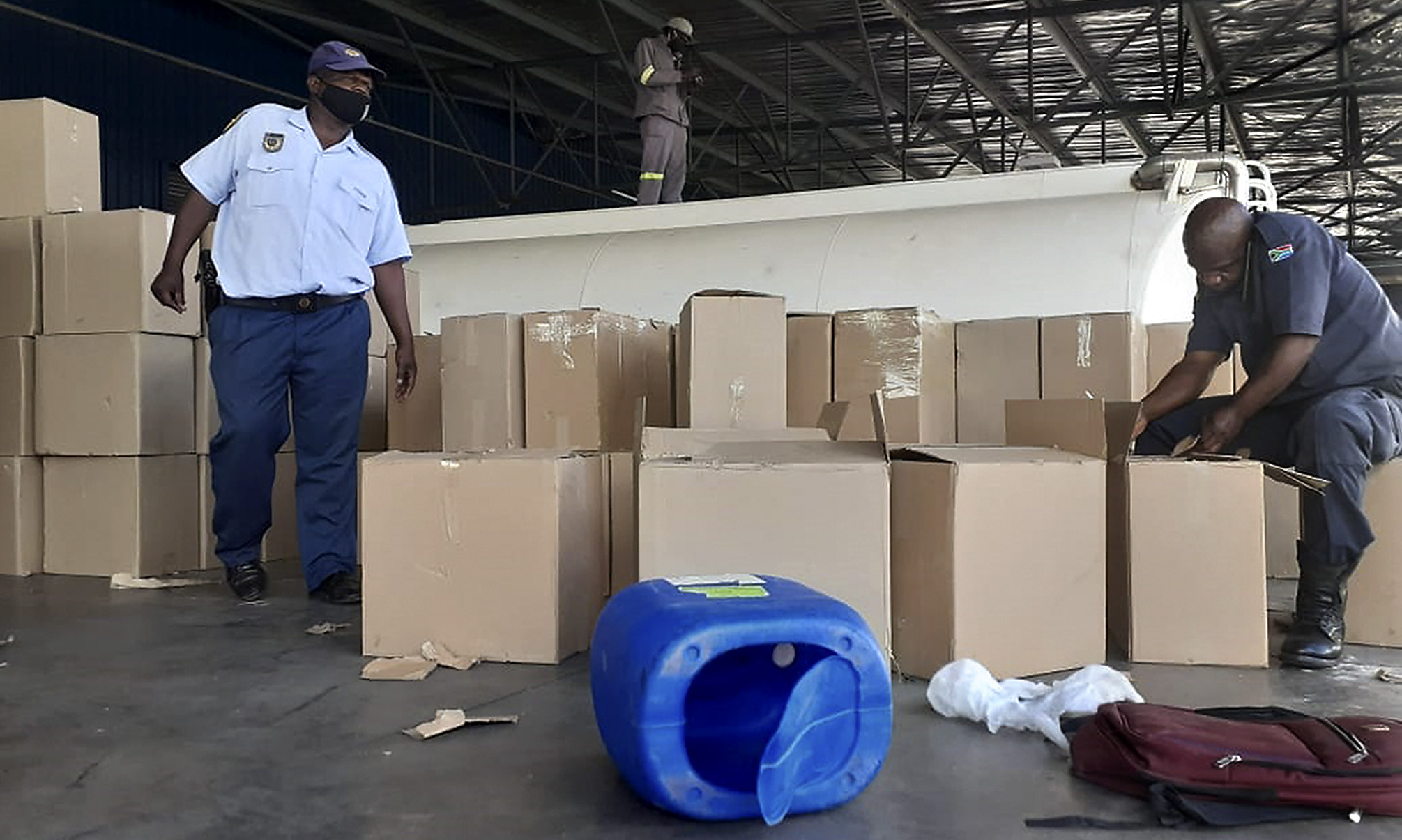
Limpopo has emerged as the hub of illicit cigarette smuggling during the lockdown period with police arresting over 20 suspected smugglers travelling mainly from across the border in Zimbabwe. In one instance police and customs officials at the Beit Bridge border post bust a fuel tanker driver who had hidden thousands of illicit cigarettes in the vehicle’s tanker. (Photo: SAPS)
Recently the Western Cape High Court heard arguments in which British American Tobacco South Africa (BATSA) and nine others are challenging the constitutionality of the ban on the sale of tobacco products during the lockdown period.
Government maintained the ban was to curb the spread of Covid-19 and to protect the health of citizens.
But BATSA argued that there is no scientific proof to support the ban, and is fighting the decision against the minister of Cooperative Governance and Traditional Affairs, Nkosazana Dlamini Zuma and two others in the Western Cape High Court. Judgment in the matter was reserved on 13 August.

Limpopo has emerged as the hub of illicit cigarette smuggling during the lockdown period. (Photo: SAPS)
The World Health Organisation (WHO) says in a June report titled, “Smoking and Covid-19”, that “there are currently no peer-reviewed studies that directly estimate the risk of hospitalisation with Covid-19 among smokers”.
The report goes on to say that “27 observational studies found that smokers constituted 1.4-18.5% of hospitalised adults”.
BATSA says the ban has had a devastating impact on tobacco farmers and has boosted the sale of illicit cigarettes, which it says costs the country approximately R35-million per day in lost taxes.
The South Africa Tobacco Transformation Alliance (SATTA) has also joined calls for the government to withdraw the ban, and went further to demand that an inquiry be set up to probe links between illicit tobacco traders and top politicians.
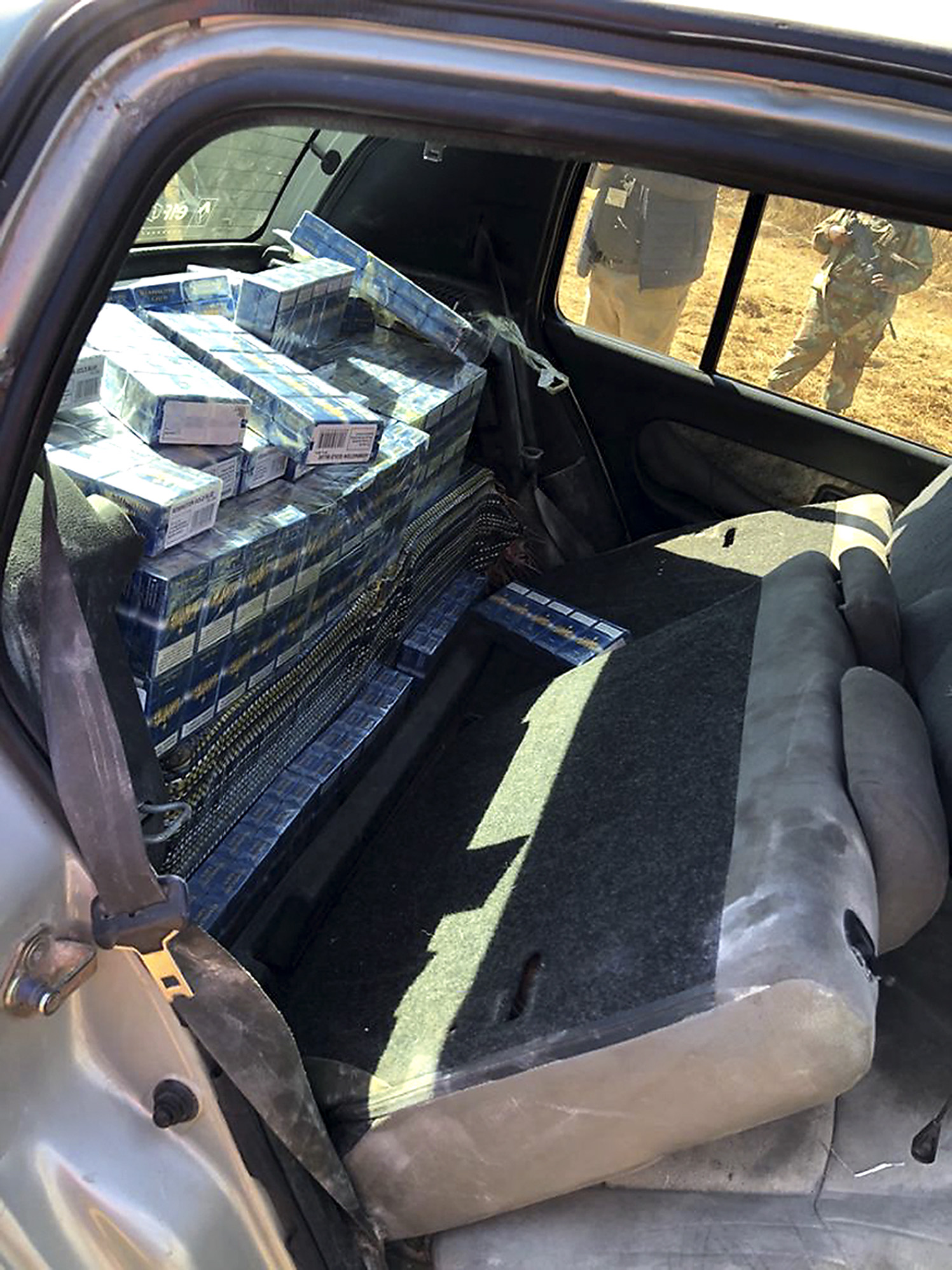
In one instance police and customs officials at the Beit Bridge border post bust a fuel tanker driver who had hidden thousands of illicit cigarettes in the vehicle’s tanker.( Photo: SAPS)
SATTA chairman Ntando Shadrack Sibisi, who is also president of the BTFA, suggests complicity between some politicians and the illicit traders, saying “it’s very clear that there are other interests at play now”.
On Saturday night President Cyril Ramaphosa announced that cigarettes and alcohol could be sold from Tuesday 18 August.
But for some, it’s too little, too late. Farmers like Sefoloshe are counting the costs of the ban.
“What I don’t understand about our government is that they are allowing products from outside the country. People are smoking but it’s not local [cigarettes],” Sefoloshe says.
“A loose illicit cigarette costs R1. A locally made cigarette costs R4. The R1 cigarette is not taxed, and the R4 one is taxed. Quality control is poor [on the illicit cigarettes], backdoor deals, [no checks by] bureau of standards.”
The WHO, a strong campaigner against smoking, says the illicit trade in tobacco products poses major health, economic and security concerns around the world.
The organisation estimates that one in every 10 cigarettes and tobacco products consumed globally is illicit, and that the illegal market is supported by various players ranging from petty traders to big tobacco companies, and in some instances even organised criminal networks involved in arms and human trafficking.
Limpopo has emerged as an illicit cigarette smuggling hub since the lockdown, with police arresting over 20 suspected smugglers and confiscating thousands of boxes of cigs. One of the biggest busts involved a consignment hidden inside a fuel tanker attempting to cross the border from Zimbabwe, where many of the smugglers are suspected to be coming from.
In a recent case, two suspects, Jino Van Denberg, 28, and Worku Hordofa aged, 34, were arrested for smuggling and possession of illicit cigarettes and bribery. Police said the pair was arrested by the SAPS in Polokwane on 29 July.
The suspects were allegedly found in possession of illicit cigarettes hidden beneath bags of oranges and packets of potato chips.
Police said a total of 79 boxes containing 3,950 cartons of illicit cigarettes with an estimated value of over R200,000.00 were confiscated, and that two suspects allegedly offered the police a bribe of R11,600.
While the battle against the illicit trade continues, farmers wait for the resumption of business. Tobacco farming offers emerging farmers like Sefoloshe security. Unlike in the vegetable farming market, where many emerging farmers struggle to survive in the highly competitive sector, emerging tobacco farmers are at least offered contracts by buyers before planting, which guarantees a return on their yield. They are also provided with seeds and mentors who monitor their crops and offer support.
With the planting season set to begin in the next three weeks, the ban – although it has been lifted – has left farmers uncertain about what’s to come.
“I don’t know if the workers I laid off will ever return because we have to wait for the contractor to give us the go ahead. We can’t just plant without a contract. What will you do with the crop if no one has placed an order?” laments Sefoloshe.
Some of the laid-off workers, who come from high unemployment areas such as Tafelkop, Dennilton and Leeuwfontein, have been visiting the farm regularly to plead for their jobs back.
For now, he hopes to survive on the sale of vegetables, many of which were destroyed when the plant supplying water to farmers in the region was shut down without notice during the Level 5 and 4 lockdown.
Sefoloshe reckons it would take the farmers between two to four years to recover from the impact of the lockdown and the tobacco ban.
“We may lose clients for good. There are costs to pay to keep the farm going. There are personal matters to take care of. There are workers to think of. We just don’t know,” he says. DM/MC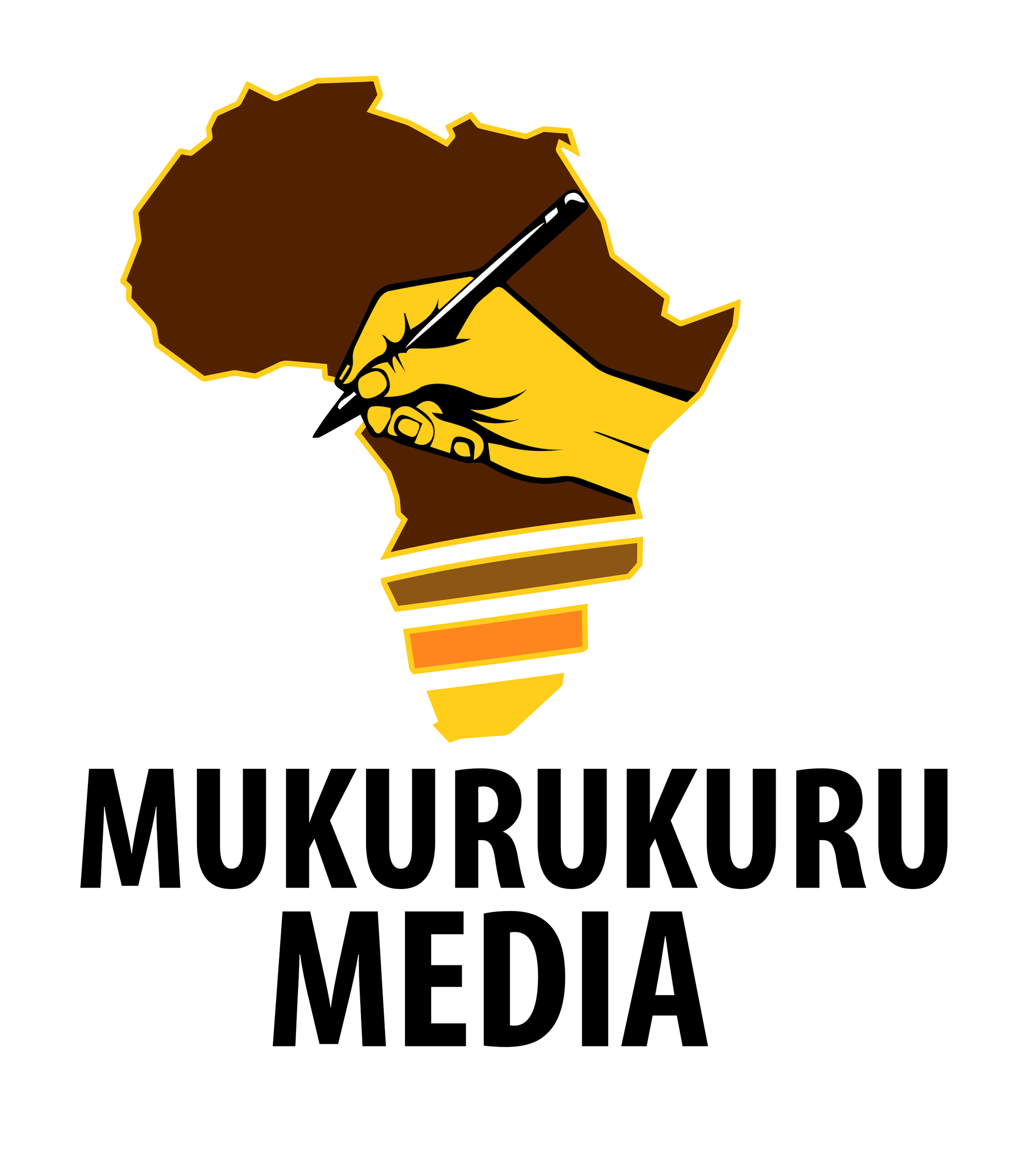
"Information pertaining to Covid-19, vaccines, how to control the spread of the virus and potential treatments is ever-changing. Under the South African Disaster Management Act Regulation 11(5)(c) it is prohibited to publish information through any medium with the intention to deceive people on government measures to address COVID-19. We are therefore disabling the comment section on this article in order to protect both the commenting member and ourselves from potential liability. Should you have additional information that you think we should know, please email [email protected]"





 Become an Insider
Become an Insider